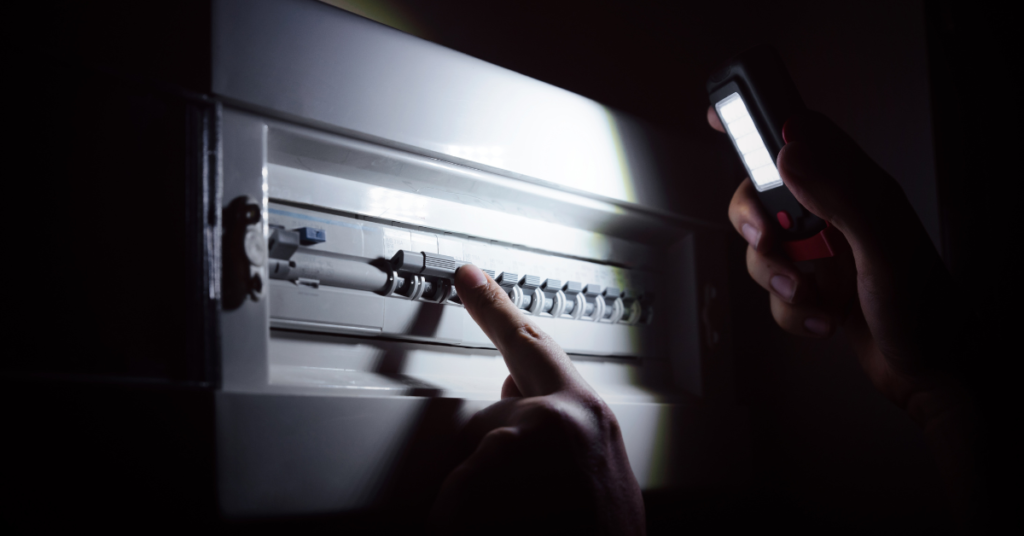Essential survival tips for power outages to ensure safety and comfort during blackouts. Learn about causes, home preparation, and actions during and after an outage — A comprehensive guide for confidently navigating power outages.
The Importance of Being Prepared for Power Outages and Causes of Seasonal Power Outages
Preparing for power outages is essential to ensure your safety and comfort during these unforeseen events. Understanding the causes of seasonal power outages can help you be better prepared for such situations.
Seasonal weather conditions, natural disasters such as thunderstorms, hurricanes, or heavy snowfall often result in power outages. These natural events can damage power lines, disrupt electrical infrastructure, and cause widespread blackouts. Additionally, utility companies’ planned maintenance and repairs can lead to temporary power loss.
To be prepared for power outages, having a well-stocked emergency preparedness kit that includes essentials like flashlights, batteries, non-perishable food, and bottled water is lifesaving and gives you more comfort.
Have a battery-powered or hand-crank radio to stay informed about any updates or announcements.
Consider investing in a backup power source, such as a generator, to keep essential appliances running.
Furthermore, take proactive measures by using a surge protector on your electronic devices. Otherwise, turn off or disconnect appliances during a blackout. Keep important documents and contact information in a waterproof and easily accessible location.
By being prepared and understanding the causes of many power outages, you can minimize inconvenience and ensure the safety of yourself and your loved ones during these situations.
Preparing for a Power Outage
Like we always say and what SafeBlackout stands for Better Safe Than Sorry!
Do you want to survive however long without electricity and a functional water system? Then you need to prepare. That’s the easiest way to get through and be calm in stressful situations.
The need to leave your home during a disaster that causes a power outage can arise for various reasons. Still, the following chapter will teach you how to leave your home as fast as needed.
Emergency Preparedness
Here are some tips to help you stay safe and as much as comfortable during an outage:
Build or Buy an Emergency Kit
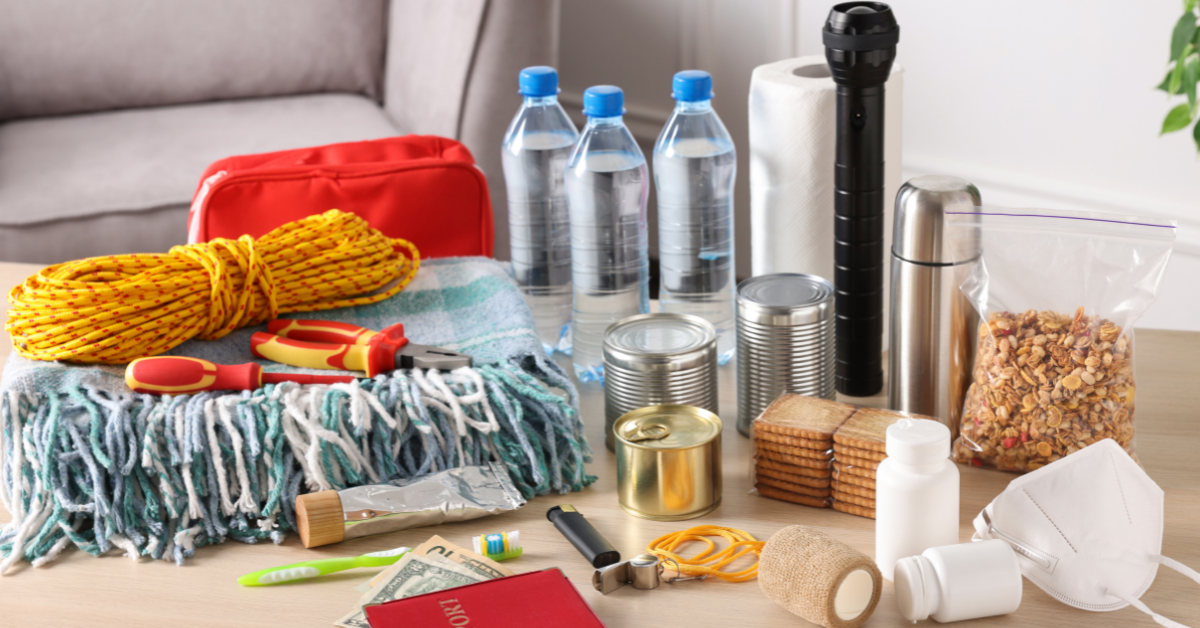
Having a well-stocked emergency kit is essential. Include items such as:
- Flashlights
- Batteries
- First Aid Kit
- Non-Perishable Food
- Water
- Personal Hygiene Kit
- Sleeping Bag
- Extra clothes for wet and cold weather
- Copies of your ID, Insurances, or other documents you want to keep with you)
- Remember to include any necessary medications or special items for infants or pets
Food and water should be stocked for 3 days per person in case of a longer-lasting power outage. But you never know which scenario will trigger your power loss. That’s why we like to prepare our own emergency kit for a week and recommend this, too.
You can check out our recommended Bug Out Bags to see some premade kit options or go deeper with the items for your emergency kit.
Alternative Charging Methods and Backup Plans for Medical Devices
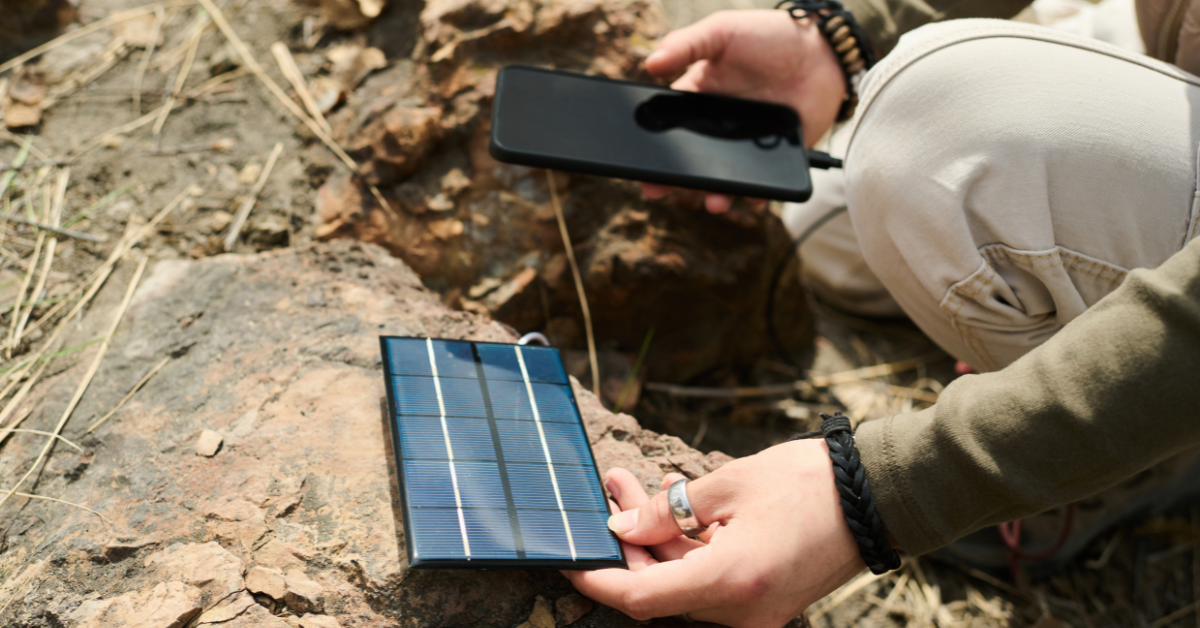
Invest in alternative device charging methods, such as portable power banks or solar chargers. If you rely on medical devices that require electricity, ensure you have a backup plan. This could involve having a generator or contacting your healthcare provider for assistance.
Evacuation Plan
Keep your car’s gas tank at least half full in case you need to evacuate or use it as a power source. Having a full gas canister stored is helpful, so you don’t have to drive to gas stations in case of need.
Familiarize yourself with local emergency plans and shelters in your area.
How to Find a Safe Place?
You can find out the nearest Red Cross Shelter to your town on this website: American Red Cross – Open Shelters
or
Text FEMA (The Federal Emergency Management Agency) “Shelter” + Your local ZIP Code to 43362
They will send you a list of nearby shelter locations.
Manual Operation of Garage Doors
Ensure you know how to manually operate your garage door by hand in case the power goes out. Familiarize yourself with the manual override function and keep the necessary tools nearby.
Unless you know another method of getting your car out of a closed garage?
Exercise the manual process, and you will be fine if needed.
You can do it!
Home Preparation Tips
Nowadays, a power outage can do more damage than we often think. Most things work with electricity, even the ones we don’t see. For example, the sump pump of a house works with electrical energy, and shuts down when the power goes off. But you can prevent flooding the basement.
The most essential things for preparing your home:
Generator
A portable or standby generator can keep essential appliances running during a power outage. Make sure to operate it safely and have it installed by a professional if necessary.
We made a whole review about Generators for Apartments if you need help to decide which one fits you best.
Install Solar Panels and a Battery Storage System
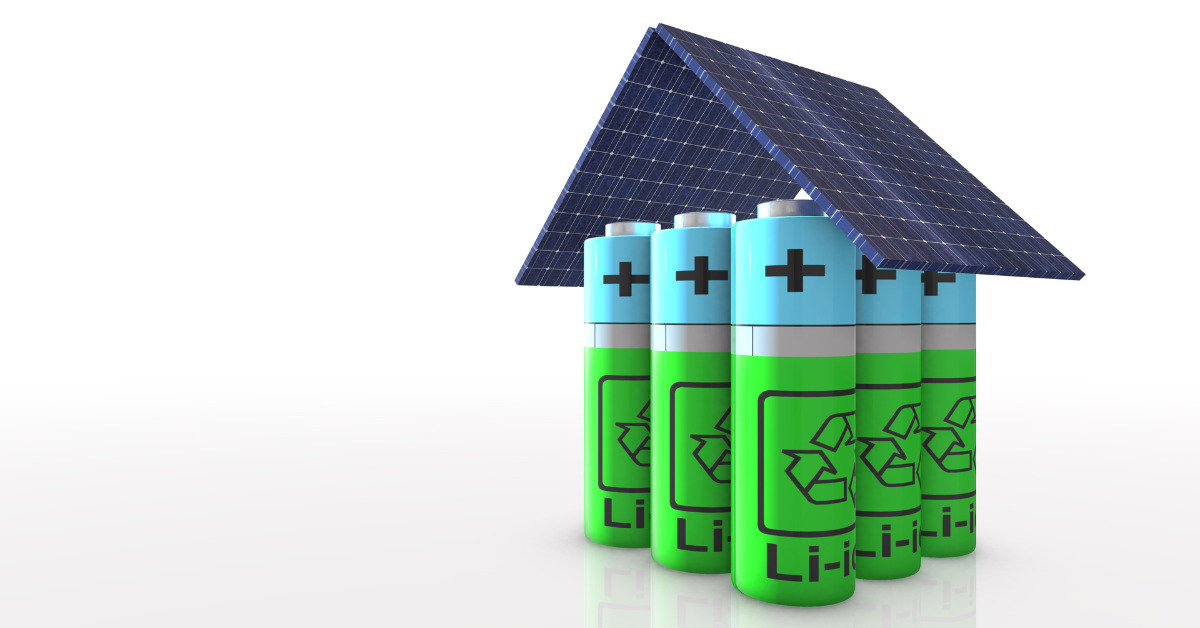
This can provide your home electricity during a power outage and reduce your reliance on the grid. Solar power comes with the benefit of renewable energy and the Battery Storage System (BSS) can store the power and release it when it’s needed most.
Store Enough Water
One gallon of water per person daily for at least 3 days is a good start. Keep in mind that you don’t need water only for drinking. It’s crucial for cooking, washing and flushing, or body hygiene.
In many areas, the water supply is regulated by electrically powered pumps. During a power outage, these pumps may fail, leading to a lack of running water. However, some water supply companies have backup generators that can operate the pumps during a power outage, allowing tap water to continue flowing.
Water may continue to flow during a power outage, but drinking may not be safe. If the water treatment plant does not have power, the water may not be properly cleaned and disinfected.
Bottled water is safe to store for up to 2 years. Just ensure you don’t keep it any longer because of the risks of drinking spoiled water.
Install Surge Protectors
These can help protect your appliances and electronics from power surges when the electricity is restored.
Upgrade Your Insulation
Proper insulation can help keep your home warm in winter and cool in summer, reducing your reliance on heating and cooling systems.
Insulation is also a good point to save money on heating despite no blackout.
Wood-Burning Stove or Fireplace
This can provide an alternative source of heat during a power outage.
Install a Battery-Powered or Manual Sump Pump
If you have a basement prone to flooding, a battery-powered or manual sump pump can help prevent water damage during a power outage.
Frozen Water-Filled Containers
Fill containers with water and freeze them, of course, before an outage. These can help keep your food cold in the refrigerator or act as a source of drinking water if needed.
Remember, being prepared can make all the difference during a power outage. Stay safe and take the necessary steps to ensure you and your family are ready for any situation that may arise.
Survival Tips During a Power Outage
You’re now stuck in a power outage? We got a few tips to help you. The rules for outages in winter and summer are different, but you don’t need to be a total expert to get through this.
Lighting and Appliances
Lightning alternatives aren’t necessary during the daytime, but when the sun has set, we need lightning options.
Don’t forget to protect your devices from surge damage when your electricity comes back.
Use Flashlights or Lanterns
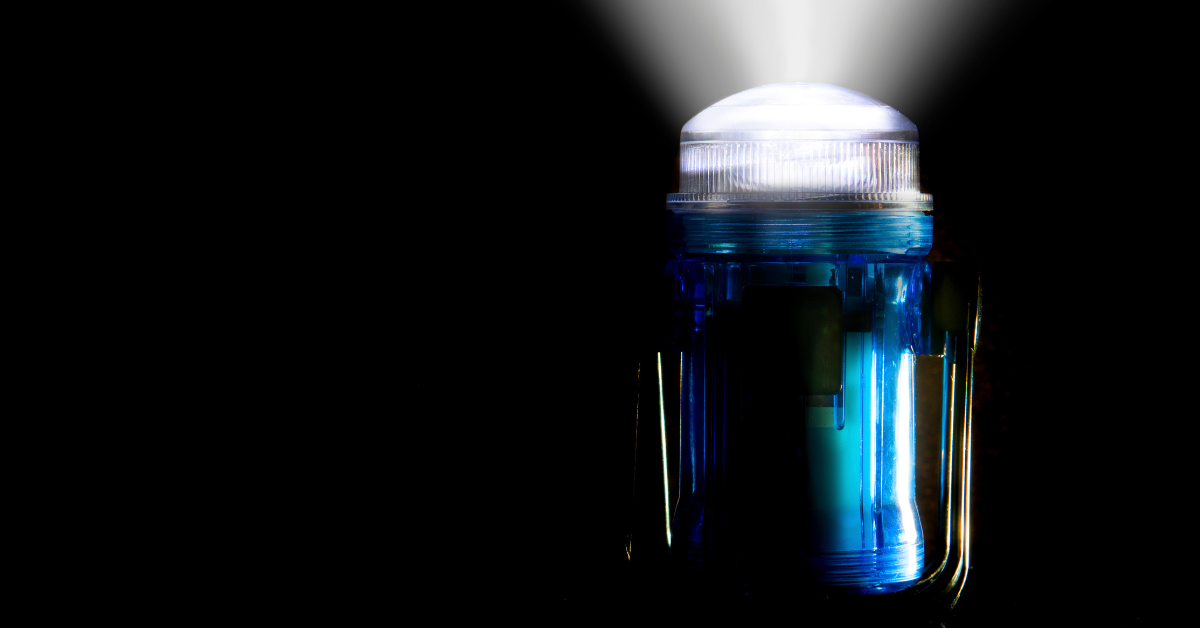
To provide light during a power outage, use flashlights or battery-powered lanterns instead of candles, which make a cozy light but can be a high fire hazard.
Do you still need to get lightning options? No problem; you will find our Best-Recommended Lights Here.
Leave One Light On
Our secret tip to quickly identify when the power is restored is to leave one light switched on. This will also prevent any confusion or accidents when the power comes back on.
Turn Off Appliances
Unplug all non-essential appliances to prevent damage from power surges when the electricity is restored.
Keep Refrigerator and Freezer Doors Closed
Without power, your unopened refrigerator will keep food cold for about 4 hours if the doors are kept closed. Avoid opening them unnecessarily to preserve the cold temperature.
Extra Tip: A full freezer will keep cold longer than an empty one.
Winter Power Outage
Dress in layers during a winter outage and use blankets to stay warm.
Keep windows and doors to unused rooms shut to keep the heat in your area.
A good tip we like is to put blankets over windows if you don’t have curtains for better insulation.
And what can make a big difference is staying active.
Just lying around and waiting for the power to return will make you cold. So get up and move to generate body heat!
Turn on your wood-burning fireplace or stove if you have one to heat your home. Make sure to open the flue and have proper ventilation.
If you have a portable generator, you can use it to power electric heaters. Please be clever and operate the generator outdoors and at least 20 feet away from windows.
Summer Power Outage
In summer, open windows for ventilation overnight and use battery-powered fans to stay cool.
It’s better to keep the blinds or curtains closed during the hottest part of the day.
Be careful with perishable food that needs to be cooled. Refrigerators stay cool for about 4 hours, provided that the door is kept closed.
If you’re unsure if your food is still good after a cooling break, throw it away. The trip to the grocery store is cheaper than health damage.
Outdoor Safety
Safety is also important outside your home. Losing electricity can arise from storms that damage power lines. Please don’t make the mistake of touching them or something like that. This is not our business and very dangerous without the proper equipment and expert knowledge.
Instead, read in the following part what you can do to help.
Report Downed Power Lines
If you see any downed power lines, report them immediately to your local utility company. Please stay away from them, as they can be dangerous!
Assist Family or Neighbors
Check on elderly or ill family members and neighbors to ensure their safety and well-being during a power outage.
Cook Safely
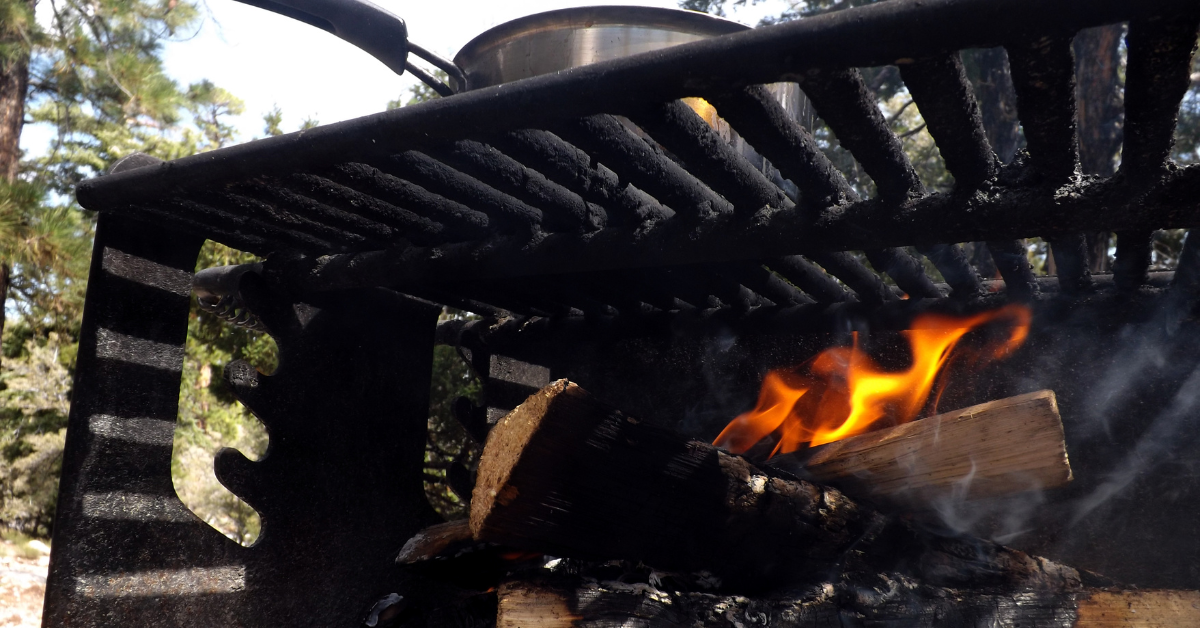
If you need to cook during a power outage, use outdoor grills or camping stoves in well-ventilated areas away from flammable materials. And make sure you don’t use these indoors to prevent carbon monoxide poisoning.
Cooking indoors with these is extremely dangerous; you can poison yourself and others or damage your home!
You shouldn’t have any cooking problems when you own a gas stove. You can light the stove with a match or a lighter.
However, some modern gas stoves have safety features that may prevent them from being used during a power outage. You can quickly check your stove’s manual or contact the manufacturer to confirm if your specific model works during a power failure.
Generator and Equipment Safety
Clearly, a generator can be an extreme life changer in this situation. But it would be best if you didn’t underestimate safe handling.
Use Generators Safely
Follow the manufacturer’s instructions for safe generator use, including proper ventilation and avoiding carbon monoxide buildup.
Avoid Carbon Monoxide Poisoning
Never use a generator or other fuel-burning equipment indoors or in enclosed spaces, as it can lead to carbon monoxide poisoning.
Carbon monoxide detectors make sure you won’t get poisoned.
Prepare for Power Surges
Use surge protectors to safeguard sensitive electronic equipment from power surges when the electricity is restored. They are beneficial for expensive and essential devices you won’t get damaged.
Surge protectors are great to save them when the power outage is over and keep the lifetime of devices up against unexpected increases in voltage like less noticeable power spikes.
Safety should be your top priority during a power outage. Stay informed about the outage status and follow any instructions from your local utility company.
After a Power Outage
So, you’ve survived a prolonged power outage. Now what? It’s time to assess the situation and take action to ensure your safety and well-being.
Exposed Foods, Restocking, and Medications Check
Here are some essential tips to help you navigate through the aftermath of a power outage:
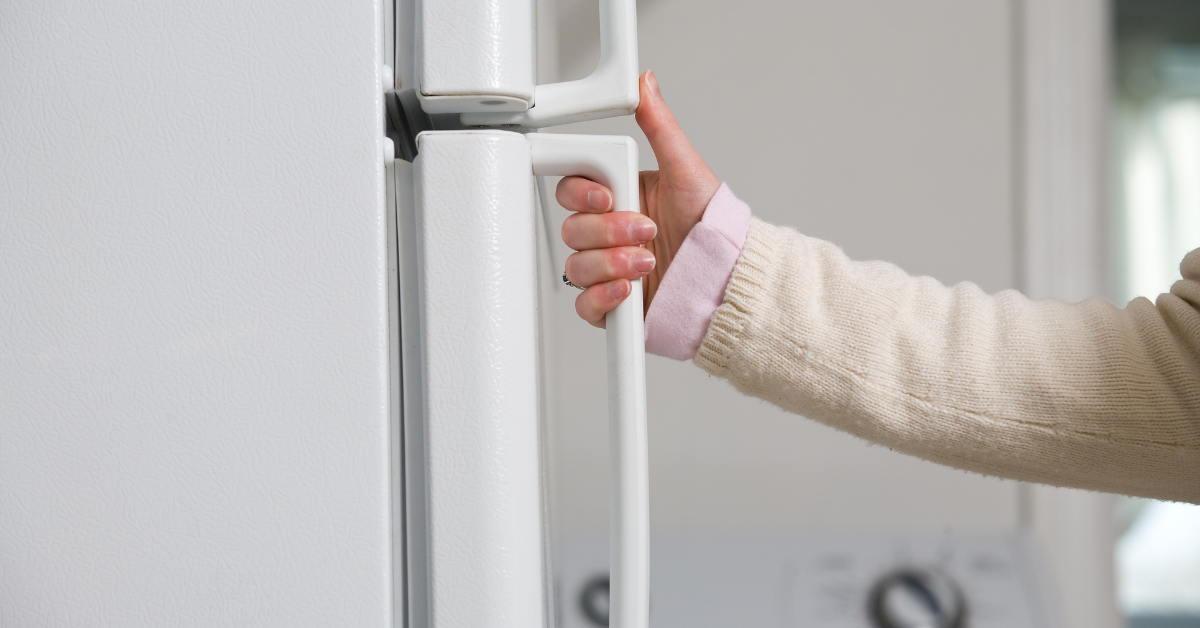
1. Check your refrigerator and freezer: Start by inspecting the food in your refrigerator and freezer. Throw away any food that has been exposed to temperatures above 40 degrees Fahrenheit for more than two hours. When in doubt, throw it out!
2. Restock essential supplies: Take inventory of your emergency supplies and restock anything used or expired during the outage. This includes batteries, flashlights, candles, non-perishable food items, and bottled water.
3. Refill medications: If you rely on medication that requires refrigeration or special storage conditions, check with your pharmacist to ensure its viability after the power outage. Refill any medications that were used or are running low.
4. Inspect electrical equipment: Before turning on any electrical devices or appliances, inspect them for any signs of damage or water exposure. If you notice any abnormalities, have them checked by a professional before use.
5. Stay informed: Keep yourself updated on the latest information regarding power restoration in your area. Follow local news channels or check with your utility company for updates and estimated restoration times.
These tips will prepare you better for future power outages and their aftermath.
Now, go ahead and restock those supplies, check your fridge, and ensure everything is back in order. You’ve got this!
Summary
The Importance of Preparation, Awareness, and Community Support
When faced with a power outage, it’s crucial to be prepared, stay informed, and rely on the support of your community. By following these survival tips for power outages, you can easily navigate through the darkness and ensure the safety and well-being of yourself and your loved ones.
Remember to stock up on essential supplies such as flashlights, batteries, non-perishable food, and water. Keep significant contact numbers handy and have a backup power source like a generator or power bank. Stay updated on weather conditions and power outage alerts through local news channels or apps.
During a power outage, conserve energy by turning off unnecessary appliances and using natural light whenever possible. Use battery-powered lights for illumination. Keep refrigerated food cold by minimizing the fridge/freezer doors opening.
Stay connected with your community. Help your family and check to see if your neighbors, especially those needing assistance. Share resources and offer support to those in need.
Together, we can overcome any challenges that come our way.
Remember, a power outage doesn’t have to be a daunting experience. With the proper preparation, awareness, and community support, you can navigate through it smoothly and emerge stronger than ever.
